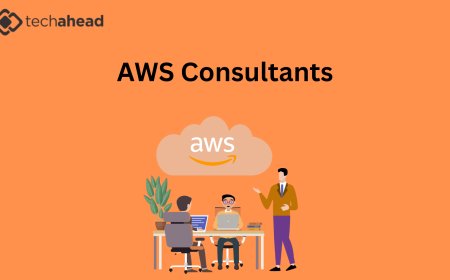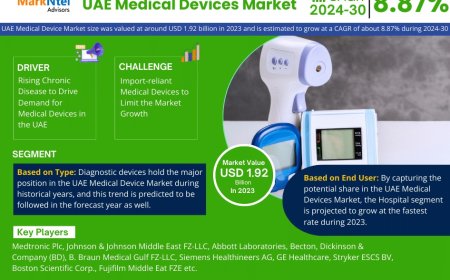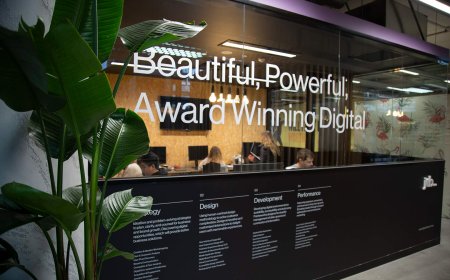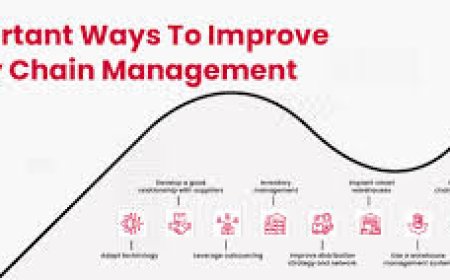Top Skills Employers Want in 2025 Graduates
Discover the top skills employers want in 2025 graduates, from digital fluency to emotional intelligence, to stand out in a competitive job market.

The job market is evolving at an unprecedented pace, and the demands placed on graduates are shifting accordingly. As automation, artificial intelligence, and digital transformation reshape industries, employers are seeking a unique blend of technical abilities and human-centric qualities that set exceptional candidates apart. It is crucial that students not only excel academically but also develop versatile competencies that align with market trends and organizational expectations.
Todays graduates must be prepared to thrive in diverse work environments that prioritize adaptability, digital fluency, and emotional intelligence. Mastering these skills will be key to unlocking career opportunities in an increasingly competitive landscape. For an insightful perspective on how educational practices have transformed over the years, we recommend reading Scholarly Helps blog post, Who Invented Homework.
Adaptability and Resilience
Employers in 2025 will prioritize graduates who can swiftly adjust to new technologies, shifting market conditions, and evolving business models. Adaptability is no longer optional; it is a defining trait that determines whether employees can navigate disruption effectively. Organizations value individuals who approach change with a growth mindset, demonstrate agility in learning new skills, and remain productive amid uncertainty. Cultivating resilience enables graduates to handle setbacks with composure, solve complex problems creatively, and maintain focus under pressure qualities that make them indispensable assets in any field.
Digital Literacy and Tech Savviness
As industries digitize operations and integrate sophisticated technologies, digital literacy will continue to be one of the most sought-after competencies. Graduates must be comfortable with a broad range of digital tools, platforms, and emerging technologies such as artificial intelligence, cloud computing, and data analytics. The ability to harness technology for productivity, communication, and decision-making sets high-performing candidates apart. Employers expect new hires to embrace digital solutions, troubleshoot common issues independently, and leverage data-driven insights to drive strategic outcomes.
Data Analysis and Critical Thinking
With businesses generating massive amounts of data daily, the demand for graduates skilled in data analysis and critical thinking has never been higher. Employers are looking for candidates who can interpret complex datasets, extract meaningful patterns, and translate findings into actionable strategies. The ability to analyze data objectively, question assumptions, and develop evidence-based solutions is invaluable across sectors, from finance and marketing to healthcare and engineering. Proficiency with analytical tools like Excel, SQL, Python, or R further enhances a graduates employability and enables them to make impactful contributions early in their careers.
Emotional Intelligence (EQ)
While technical know-how remains important, emotional intelligence is the differentiating factor that drives effective collaboration and leadership. Employers value graduates who demonstrate self-awareness, empathy, and strong interpersonal communication skills. High EQ professionals navigate workplace dynamics with maturity, resolve conflicts diplomatically, and foster inclusive, positive work cultures. In hybrid and remote work settings, emotional intelligence becomes even more vital, as graduates must engage and motivate diverse teams without the benefit of daily face-to-face interactions.
Communication and Storytelling
Graduates who communicate clearly, confidently, and persuasively stand out in competitive applicant pools. Employers seek individuals who can articulate ideas succinctly, present information logically, and tailor messages for varied audiences. Effective storytelling is especially crucial in roles that involve pitching proposals, delivering presentations, or marketing products and services. The ability to translate technical jargon into accessible language and inspire others through compelling narratives is a skill that transcends industries.
Collaboration and Teamwork
As businesses become more globally connected, teamwork is integral to achieving organizational goals. Employers want graduates who thrive in diverse, cross-functional teams and contribute constructively to group projects. Successful team players listen actively, respect differing perspectives, and build trust through accountability. With remote and hybrid work models becoming the norm, graduates must also excel at virtual collaboration, using digital tools to coordinate tasks, share ideas, and maintain productivity across time zones.
Leadership and Initiative
Employers recognize that future leaders often emerge early in their careers. Graduates who exhibit initiative, take ownership of tasks, and motivate peers to achieve shared objectives are highly valued. Leadership is not confined to managerial titles; it manifests through problem-solving, decision-making, and the courage to challenge the status quo when necessary. Developing leadership skills early empowers graduates to seize growth opportunities and advance into roles with greater responsibility.
Cultural Intelligence and Diversity Awareness
In a globalized workforce, cultural intelligence is an indispensable skill. Employers seek graduates who appreciate diversity, demonstrate cultural sensitivity, and adapt communication styles to collaborate effectively with people from different backgrounds. Understanding and respecting cultural nuances fosters inclusive workplaces where creativity and innovation can thrive. Graduates who build cultural competence position themselves as versatile professionals capable of navigating international projects and multicultural teams with ease.
Innovation and Creativity
Creativity is no longer the domain of artistic professions alone; it is a critical driver of innovation across industries. Employers in 2025 expect graduates to approach challenges with curiosity, think outside the box, and propose novel solutions that propel businesses forward. Creative thinkers are invaluable during brainstorming sessions, product development cycles, and process improvement initiatives. Developing a mindset that embraces experimentation and accepts occasional failure as part of growth is essential for graduates aiming to add unique value in dynamic work environments.
Project Management and Organizational Skills
Efficient project management is a skill that underpins productivity and ensures goals are met on time and within budget. Graduates who demonstrate strong organizational skills, prioritize tasks effectively, and manage resources wisely are trusted to handle complex assignments. Familiarity with project management methodologies like Agile or Scrum can give candidates a distinct advantage, particularly in tech-driven industries. Employers appreciate graduates who take a proactive approach to planning, anticipate risks, and communicate progress transparently to stakeholders.
Financial Literacy and Business Acumen
In an economy where every department contributes to the bottom line, graduates who understand basic financial principles and business operations are highly valued. Financial literacy helps employees make informed decisions that align with organizational objectives. Whether its budgeting for a project, analyzing ROI, or evaluating market trends, these skills contribute to strategic thinking and sound judgment. Business acumen complements technical expertise and enables graduates to grasp how their contributions impact overall performance.
Environmental and Social Responsibility
Sustainability is an integral aspect of modern business strategy. Employers increasingly expect graduates to understand the social, environmental, and ethical implications of their work. Candidates who are aware of sustainable practices and demonstrate a commitment to corporate social responsibility stand out as future-focused professionals. Whether through implementing eco-friendly processes, supporting community initiatives, or promoting ethical sourcing, graduates can position themselves as conscientious contributors to a better world.
Continuous Learning and Curiosity
Employers know that learning does not stop after graduation. The best candidates maintain an insatiable curiosity and commit to lifelong learning to keep pace with industry developments. Graduates who proactively seek out training, certifications, and new skills remain adaptable and relevant as job roles evolve. Demonstrating a growth mindset signals to employers that a candidate is self-driven, resilient, and prepared to embrace future challenges head-on.
As we look ahead to 2025, graduates must equip themselves with a diverse mix of technical proficiency, interpersonal finesse, and a forward-thinking mindset. By cultivating adaptability, digital fluency, emotional intelligence, and a commitment to lifelong growth, new professionals can meet and exceed employers evolving expectations. Investing in these top skills today ensures that graduates are not only ready to thrive in the modern workplace but also poised to lead, innovate, and inspire in the years to come




























